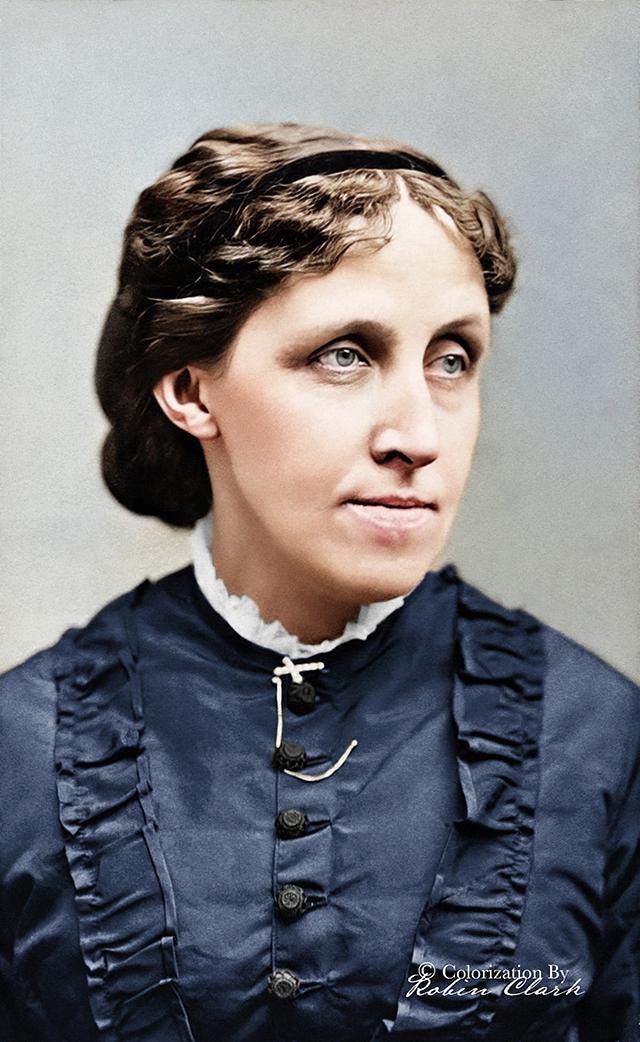The Literary Past: Little Women Part One
The Reality that Shaped Louisa May Alcott and Her Fiction
Today, I am finally putting hours of research and script writing out into the world. Although I feel a bit timid, a bit shy, I know that my greatest passion is teaching creative writing and sharing the literature that inspires me to keep trying.
A bit about me: I am Juliette Darcy, a neurodivergent woman with a particular love for literary history and close readings. The written word was my first means of self-expression. Within my school-grade journals were hundreds of stories about who I wanted to be — and perhaps, who I have been all along.
In my twenties, I moved alone from rural Southern Utah to the bustling city of London with one goal: to write. And write I did — every day, for hours on end. In tube carriages, on trains, and, for some odd reason, in the employee break room of the Kensington High Street Whole Foods. During this uniquely creative season, I birthed the idea for my first novel, which earned me a place in the Bath Spa University MA Creative Writing program that, subsequently, broke and rebuilt me many times over.
After much personal upheaval, I am back, taking my seat as an enthusiastic pen-holder with caffeine jitters and a yearning to be enough. This project, Reading Room Revival, was born out of my desire to connect, discuss, learn, and come home to myself after a few years of heartache.
So, with that said — welcome, my friend. Put the kettle on and maybe take a moment to clean your favorite mug. Grab a blanket and settle in while I teach you what I’ve learned about our girl, Louisa May Alcott.
Little Women Part One
The Reality that Shaped Alcott’s Fiction
Massachusetts in the 1860s was loud. Not just the kind of loud you could hear, but loud you could feel in your bones. Factories shook the streets. Coal smoke clung to the inside of your nose. And emotions flickered between celebration and grief as a new era settled upon the citizens of the United States.
And just a few miles from those mills, in Concord, Massachusetts, Louisa May Alcott sat at a small desk, surrounded by people who believed they could change the world — abolitionists, suffragists, philosophers. It was a place where the fight for freedom didn’t end with the war. It had only changed targets.
The Civil War was over, but it hadn’t faded. More than 750,000 lives were lost. Black crepe still hung in doorways. Veterans with missing limbs lined up for work. Entire towns knew the sound of church bells tolling for yet another soldier. Families like the Alcotts felt the aftermath in every conversation about duty, equality, and what kind of country the Union had fought to become.
The economic ground was shifting under everyone’s feet. Massachusetts’ textile mills had boomed during the war, producing uniforms and blankets at a breakneck speed. By 1860, over 100,000 people worked in manufacturing, many of them children breathing lint-filled air in sweltering rooms alongside their parents. When the war ended and contracts vanished, so did the jobs. Wages dropped, factories closed, and families without savings, like the Alcotts, scraped by on teaching, sewing, and taking boarders.
Or, in Louisa’s case, writing — a skill that would place her right in the center of a world where women were beginning to test the edges of what was possible.

